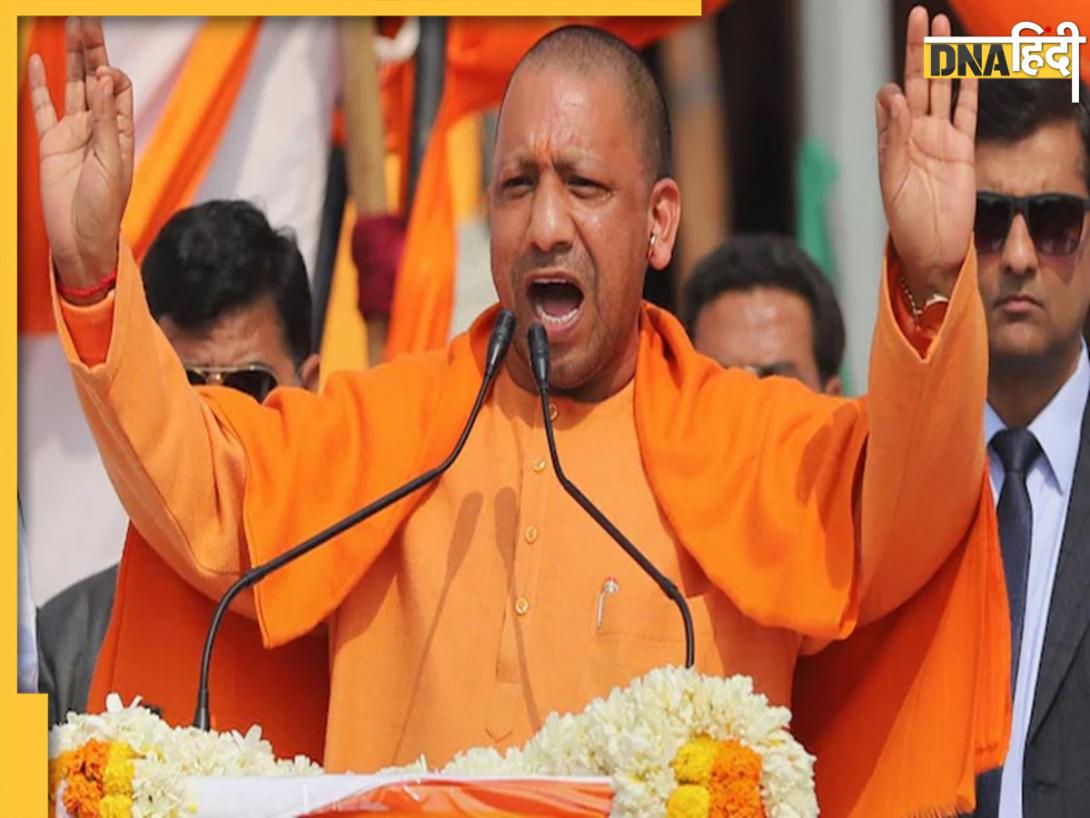A good poker player will think about odds and payouts. A good investor will consider the same while selecting, allocating stocks
Recently, poker as a professional sport has started to catch the fancy of the masses in India. In more developed parts of the world, poker is already considered as a professional sport.
Even stock markets can be considered as just gambling, however, there is much more than meets the eye. I use stock markets as representative of all kinds of financial markets through the article. As in poker, in the long run, most of the money is made by the same handful of participants while the others are just left with the holes in their pockets and envy.
Let us explore what makes comparison between playing poker and investing in stock markets possible? Let us explore.
Game of skills however luck still plays a part: “It is not about the cards you are dealt, but how you play the hand” – Randy Pausch said in The Last Lecture. That comment, though uses cards as a metaphor, was about life in general. This very well applies to poker and investing. The first part of the quote (“the cards you are dealt”) indicates luck while the second part (“how you play it”) indicates skill. Every round you get a new set of cards and you have to decide how to play them. Different players will get different outcomes with the same set of cards. Similarly, in stocks, most of the information is publicly available but can be inferred very differently by different participants. This skill, to see correctly what others don’t, along with the ability to act accordingly is what separates the successful investor or player.
Long term thinking: A seasoned poker will not be ecstatic or disappointed with results of one hand or even a few sessions of poker. They will instead focus on is how their cumulative profits/losses stack up over a long period of with many poker sessions. In the short run, the role of luck is magnified while over a period it is the skills that will matter more. Same is the case with investing. An investor cannot be said to be successful/unsuccessful based on a few good/bad trades or years. It is the compounding over the long term that will matter for wealth creation.
Making decisions with incomplete information: What will happen in future is unknown and decisions in both poker and investing have to be made on assumptions of future. Hence probabilistic thinking plays an important role in decision making. A good poker player will think in terms of odds and payouts while deciding to whether to bet or not and the size of the bet. Similar thought process would be followed by a good investor as well while selecting stocks and deciding on allocation.
Patience: “The stock market is a no-called-strike game. You don’t have to swing at everything – you can wait for your pitch.” – Warren Buffett. Unlike in baseball, an investor can afford to let go practically any number of ideas till (s)he is convinced. Same goes for poker. Some nights a player might not even get a single attractive bet. In nights like these, investor/player should not get impatient and make bad bets. More often than not participants will end up losing money in these bets.
Courage: “The wise ones bet heavily when the world offers them that opportunity. They bet big when they have the odds. And the rest of the time, they don't. It's just that simple.” – Charlie Munger. After waiting patiently when a poker player has a good hand or an investor has a great idea, they have to bet big which requires courage. These kind of high conviction bets are the ones which make the real difference in the bankroll of a poker player or an investor.
Differences: Limited number and known participants vs unlimited and unknown: Poker is a zero-sum game (negative-sum game if we add casino cut), generally played by individuals who make money of each other. The participants are limited and more often than not, known. While betting, a player get knows who the opponent is and their prowess. The stock markets on the other side are much more complex with participation from many kinds of financial institutions, corporates, as well as individuals. On the other side of a trade, there can be anyone ranging from an uninformed individual to an extremely sophisticated global financial institution with an unrestricted access to managements. There are hardly any unkown and unknowable (UU) situations in poker while UUs are a very common feature of the stock markets. Such ambiguity makes investing a much more difficult game.
Scalability and size: The increase in difficulty level also make the stakes meatier. One can probably make (or lose) millions, but to make (or lose) billions one has to knock the doors of the complex world of stock markets. To conclude, there is an eerie similarity in the thought process and temperament required that is required to make money in poker as well as investing. The difference being the size of the pie and the participants vying for it.
Just for the records, my intention with this article is not to encourage anyone to participate in any poker or markets.
ON SIMILAR GROUND
- A good poker player will think about odds and payouts. A good investor will consider the same while selecting, allocating stocks
- While betting, a player knows the opponent. Stock markets are much more complex with many financial institutions, corporates
The writer is head – portfolio management services, Equirus Capital
![submenu-img]() 'Milord lunch is missing': Monkey enters SC, steals lunch, WATCH viral video
'Milord lunch is missing': Monkey enters SC, steals lunch, WATCH viral video![submenu-img]() 'Don’t want wife...': Amitabh Bachchan had one condition before marrying Jaya Bachchan, asked her to choose..
'Don’t want wife...': Amitabh Bachchan had one condition before marrying Jaya Bachchan, asked her to choose..![submenu-img]() Meet Shark Tank India's newest judge, set to join Anupam Mittal, Aman Gupta, Namita Thapar, to replace Deepinder Goyal
Meet Shark Tank India's newest judge, set to join Anupam Mittal, Aman Gupta, Namita Thapar, to replace Deepinder Goyal![submenu-img]() Amitabh Bachchan asked Anant, Akash and Isha Ambani about Reliance's first-ever business, it was..
Amitabh Bachchan asked Anant, Akash and Isha Ambani about Reliance's first-ever business, it was..![submenu-img]() This is India's longest train route covering 4189 kms in 75 hours, not Rajdhani, Shatabdi, Vande Bharat, Tejas, Duranto
This is India's longest train route covering 4189 kms in 75 hours, not Rajdhani, Shatabdi, Vande Bharat, Tejas, Duranto![submenu-img]() 'हरियाणा में जाटों के कारण हारे दलित' Mayawati ने दोहराई यूपी जैसी कहानी, बोलीं- INLD ने नहीं दिलाए BSP को वोट
'हरियाणा में जाटों के कारण हारे दलित' Mayawati ने दोहराई यूपी जैसी कहानी, बोलीं- INLD ने नहीं दिलाए BSP को वोट![submenu-img]() Haryana Election Result 2024: जिन सीटों पर CM Yogi ने की रैली, जानें वहां कैसा रहा हाल
Haryana Election Result 2024: जिन सीटों पर CM Yogi ने की रैली, जानें वहां कैसा रहा हाल![submenu-img]() Haryana Election Results 2024 : तीसरी बार खिला कमल, इन 5 कारणों से भाजपा ने लहराया जीत का परचम
Haryana Election Results 2024 : तीसरी बार खिला कमल, इन 5 कारणों से भाजपा ने लहराया जीत का परचम ![submenu-img]() Haryana Assembly Election Result 2024: हरियाणा की 10 बड़ी सीटों पर किसने मारी बाजी, किसे मिली मात, जानें रिजल्ट
Haryana Assembly Election Result 2024: हरियाणा की 10 बड़ी सीटों पर किसने मारी बाजी, किसे मिली मात, जानें रिजल्ट![submenu-img]() Haryana Election Result: हरियाणा के इस इलाके में मुसलमानों ने चला ऐसा दांव, खड़ी नहीं हो पाई बीजेपी
Haryana Election Result: हरियाणा के इस इलाके में मुसलमानों ने चला ऐसा दांव, खड़ी नहीं हो पाई बीजेपी![submenu-img]() This company overtakes Ratan Tata's firm to become India’s…; it is owned by…
This company overtakes Ratan Tata's firm to become India’s…; it is owned by…![submenu-img]() Mahindra Thar ROXX booking to start from..., check waiting period, details
Mahindra Thar ROXX booking to start from..., check waiting period, details![submenu-img]() BMW launches CE 02 electric scooter in India; price starts at Rs…
BMW launches CE 02 electric scooter in India; price starts at Rs…![submenu-img]() Mahindra Thar Roxx 4x4 prices revealed, starts at Rs…
Mahindra Thar Roxx 4x4 prices revealed, starts at Rs…![submenu-img]() Sebi gives nod to Hyundai India's Rs 20,000 crore IPO, listing month is...
Sebi gives nod to Hyundai India's Rs 20,000 crore IPO, listing month is...![submenu-img]() Meet Bhavik Bansal who cracked NEET with AIR 1, topped AIIMS MBBS entrance exam, he is now...
Meet Bhavik Bansal who cracked NEET with AIR 1, topped AIIMS MBBS entrance exam, he is now...![submenu-img]() Meet IIT-JEE topper with 334 marks in JEE Advanced, went to IIT Bombay with AIR 1, left after a year due to....
Meet IIT-JEE topper with 334 marks in JEE Advanced, went to IIT Bombay with AIR 1, left after a year due to....![submenu-img]() GATE 2025: Registration ends today, apply with late fee at...
GATE 2025: Registration ends today, apply with late fee at...![submenu-img]() ISRO Recruitment 2024: Government job vacancies for 103 posts, salary up to Rs 208700, check eligibility, other details
ISRO Recruitment 2024: Government job vacancies for 103 posts, salary up to Rs 208700, check eligibility, other details![submenu-img]() Meet IIT drop out, who cracked JEE twice, cracked UPSC exam to become IAS officer, then resigned due to...
Meet IIT drop out, who cracked JEE twice, cracked UPSC exam to become IAS officer, then resigned due to...![submenu-img]() After Hassan Nasrallah's Death, This Cleric Is Now Tipped To Be Hezbollah Leader | Israel | Lebanon
After Hassan Nasrallah's Death, This Cleric Is Now Tipped To Be Hezbollah Leader | Israel | Lebanon![submenu-img]() Hashem Safieddine, Cousin Of Hassan Nasrallah To Become Hezbollah's New Chief | Israel-Lebanon War
Hashem Safieddine, Cousin Of Hassan Nasrallah To Become Hezbollah's New Chief | Israel-Lebanon War![submenu-img]() Israel Hezbollah War: Nasrallah's Death, A Turning Point for Hezbollah's Future? Experts Explain
Israel Hezbollah War: Nasrallah's Death, A Turning Point for Hezbollah's Future? Experts Explain![submenu-img]() Israel Hezbollah War: Hassan Nasrallah's Death Leads To Protests In J&K, Ex-CM Mehbooba Mufti Reacts
Israel Hezbollah War: Hassan Nasrallah's Death Leads To Protests In J&K, Ex-CM Mehbooba Mufti Reacts![submenu-img]() Israel Hezbollah War: Nasrallah's Death Leads To Protest By Women & Children In Jammu And Kashmir
Israel Hezbollah War: Nasrallah's Death Leads To Protest By Women & Children In Jammu And Kashmir![submenu-img]() Meet Shark Tank India's newest judge, set to join Anupam Mittal, Aman Gupta, Namita Thapar, to replace Deepinder Goyal
Meet Shark Tank India's newest judge, set to join Anupam Mittal, Aman Gupta, Namita Thapar, to replace Deepinder Goyal![submenu-img]() Meet IIT graduate who built Rs 840 biryani business, later took over global food giant, he is....
Meet IIT graduate who built Rs 840 biryani business, later took over global food giant, he is....![submenu-img]() Meet man who studied at IIT Madras, worked for 23 years with Microsoft, now leads company worth Rs 25.91 lakh crore as..
Meet man who studied at IIT Madras, worked for 23 years with Microsoft, now leads company worth Rs 25.91 lakh crore as..![submenu-img]() Meet man who worked at oil refinery to save money for his firm, now owns business worth Rs 80000 crore
Meet man who worked at oil refinery to save money for his firm, now owns business worth Rs 80000 crore![submenu-img]() Mukesh Ambani, Isha Ambani’s platform brings another global brand in India, launches...
Mukesh Ambani, Isha Ambani’s platform brings another global brand in India, launches...![submenu-img]() Meet Bigg Boss 18 contestant Nyra Banerjee with 400 pair of clothes
Meet Bigg Boss 18 contestant Nyra Banerjee with 400 pair of clothes![submenu-img]() 10 times Aabha Paul sizzled in red, sultry photos, sexy videos
10 times Aabha Paul sizzled in red, sultry photos, sexy videos![submenu-img]() 7 famous railway bridges in India
7 famous railway bridges in India![submenu-img]() 6 reasons to avoid buying a black car
6 reasons to avoid buying a black car![submenu-img]() In pics: Kareena Kapoor looks mermerising in statement Manish Malhotra saree at Singham Again trailer launch
In pics: Kareena Kapoor looks mermerising in statement Manish Malhotra saree at Singham Again trailer launch








































)
)
)
)
)
)
)
)
)
)
)
)
)
)
)





)
)
)
)
)
)